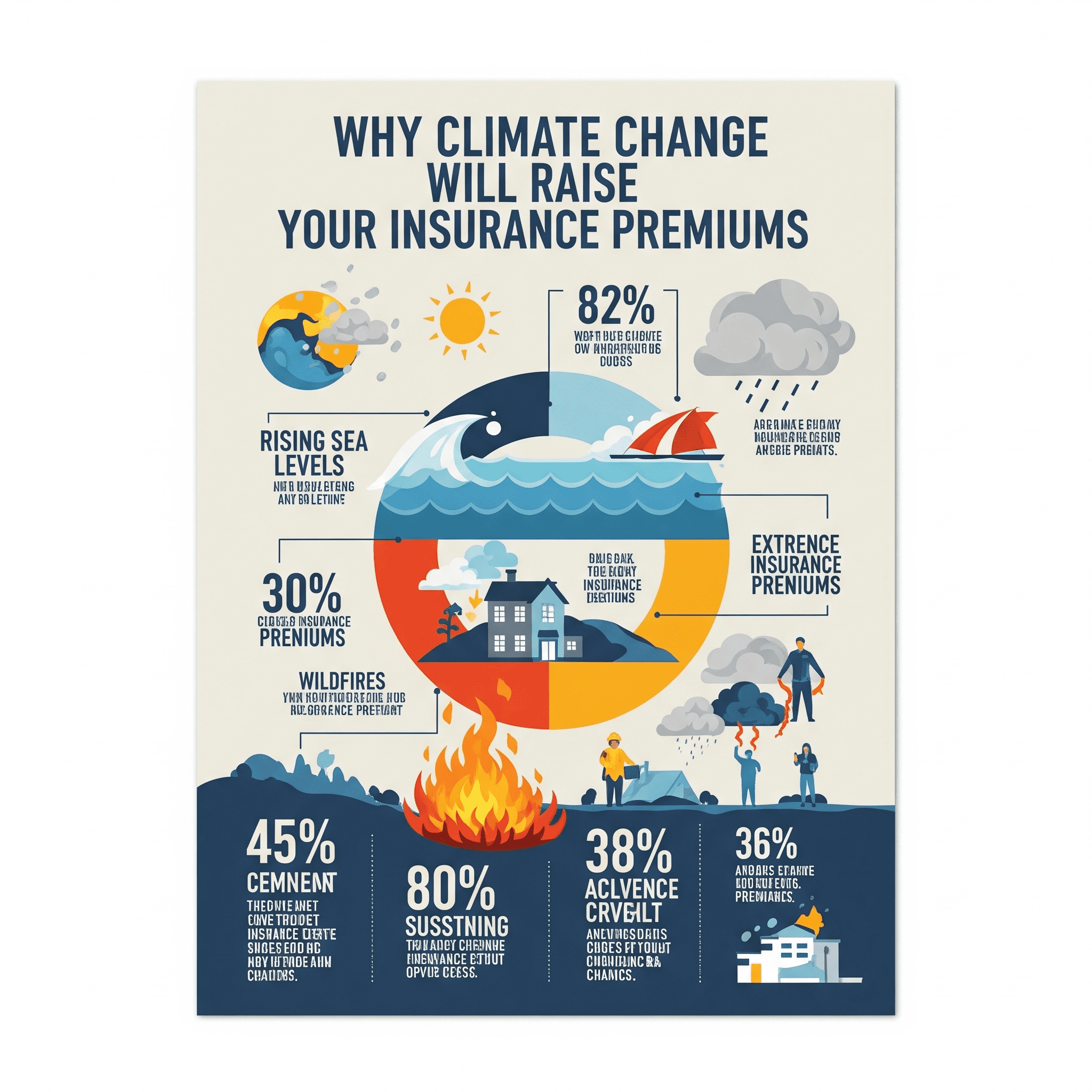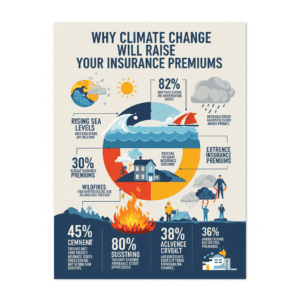Why Climate Change Will Raise Your Insurance Premiums
Why Climate Change Will Raise Your Insurance Premiums
Why This Matters More Than You Think
Most people associate climate change with rising temperatures, melting glaciers, or polar bears. But few realize that the ripple effects of climate change are already affecting something much closer to home — the cost of your insurance.
In recent years, unpredictable weather events have caused a surge in insurance claims. From flash floods and severe heatwaves to unseasonal storms, the impact of climate change has forced insurance companies to rethink how they assess risk. The result? Higher premiums for individuals, families, and businesses across the country.
Let’s understand what’s happening behind the scenes and how it affects your pocket.
Climate Change and Insurance: What’s the Connection?
Every insurance policy is based on one thing — risk. The higher the risk, the more you pay. When climate patterns were relatively stable, insurers could predict losses more accurately. But now, with floods happening in cities that never used to flood, and heat-related illnesses on the rise, insurers are seeing increased claims from unexpected places.
This uncertainty forces them to increase premiums to stay financially safe. In other words, the more unpredictable the climate becomes, the more you’ll have to pay to protect yourself.
How Insurance Premiums Are Already Increasing from climate change
Across India, several sectors are already seeing the financial impact.
In cities like Mumbai, Chennai, and Guwahati, homeowners have reported a rise in property insurance premiums. These areas are increasingly classified as high-risk zones due to repeated flooding.
Vehicle insurance in regions with waterlogging and poor drainage systems has also gone up. Cars damaged in floods have led to a spike in claims over the past three years.
Farmers in states like Maharashtra and Punjab are facing higher premiums on crop insurance because of inconsistent rainfall and pest outbreaks, both linked to changing weather.
Even health insurance is being indirectly affected. As heat-related illnesses, respiratory issues, and mosquito-borne diseases become more common, insurers are preparing for a future with increased health-related claims. These risks are gradually reflected in the cost of premiums.
Why This Trend Will Continue
There are three reasons why insurance premiums will keep rising due to climate change.
First, natural disasters are becoming more frequent and more intense. The financial damage from each event is higher than it used to be. Insurance companies need to be prepared for these larger payouts, and so they raise premiums to build that buffer.
Second, insurers are now using advanced data tools to identify risky zones. If your home or business is in an area predicted to face floods, drought, or extreme heat, your premiums could automatically be higher, even if you’ve never filed a claim before.
Third, the cost of rebuilding or medical care after a climate event is also rising. Materials are more expensive, labour costs are increasing, and hospitals are under pressure. All of this adds to what insurance companies have to pay — and that gets passed on to the customer.
What You Can Do About It
While you can’t control the weather, you can take a few smart steps to protect yourself financially.
Start by reviewing your current insurance policies. Make sure your home insurance includes protection from floods and storms. If it doesn’t, ask your insurer about additional riders.
For vehicle insurance, consider options that include water damage or allow easy add-ons during monsoon seasons.
In terms of health insurance, look for policies that cover climate-linked conditions like respiratory illnesses, dehydration, and heatstroke. Some modern plans now include wellness benefits that reward you for staying healthy — which can help balance out premium increases.
Finally, buy insurance sooner rather than later. As climate change continues to reshape how insurers assess risk, the longer you wait, the more expensive coverage is likely to become.
The Bigger Picture
Climate change is not a distant future problem. It is here now, influencing our daily lives in subtle ways. One of those ways is through the rising cost of financial protection.
Insurance has always been about preparing for the unexpected. But when the unexpected becomes more frequent, that preparation becomes more expensive.
By staying informed, choosing the right coverage, and acting early, you can protect your finances — even in a world that’s changing fast.
visit policyzar.com and myinsurancedost.com for the best information about insurance and premiums.








